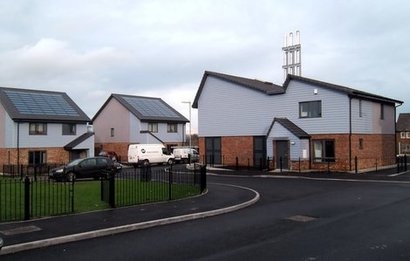
The funding is part of the government’s £3.8 billion Social Housing Decarbonisation Fund (SHDF) aiming to bring a significant amount of the social housing stock currently below EPC C up to a higher standard. The fund has already supported 2,100 households through a £61million demonstrator project launched in October 2020, delivering warmer homes, reducing fuel bills, tackling fuel poverty and supporting green jobs.
“The UK has a strong track record in improving the energy performance of its homes and this funding will continue that as we deliver huge benefits for social housing residents – ensuring they keep more of their cash” said Minister for Business and Energy Lord Callanan. “The £3.8 billion we’re investing through the Social Housing Decarbonisation Fund is helping drive down energy bills for thousands, targeting help to those who need it most by making their homes warmer, more comfortable and greener.”
A total of 69 projects have been allocated financial support in a first wave of funding, allocated to local authorities who will deliver them in collaboration with social housing providers. This funding is designed to encourage social housing providers to improve the least energy-efficient homes first and ensure that heat loss prevention measures, such as insulation, are installed effectively and to a rigorous performance standard. It will also ensure energy efficiency measures installed are chosen in a way that minimises the potential for them having to be replaced in the future.
The government expects the funding to generate around 9,000 jobs in the green energy sector and to deliver carbon emissions savings equivalent to taking up to 6,000 cars off the road in any given year.
In 2008, just 9 percent of UK homes had an Energy Performance of C or above. This has risen to 46 percent, with the social housing sector up from 18 percent in 2008 to around 66 percent.
“We warmly welcome the announcement of the first Social Housing Decarbonisation Fund recipients” said National Housing Federation Chief Executive Kate Henderson. “Alongside helping us to achieve our crucial net zero target, this will mean warmer, more comfortable homes for social housing residents, and importantly help to protect them from rising energy bills. Housing associations are committed to working with government to upgrade the nation’s social housing stock, and this fund will play a vital role in this.”
The upgrades are expected to be completed by the end of March 2023.
For additional information:
Department for Business, Energy & Industrial Strategy (BEIS)

